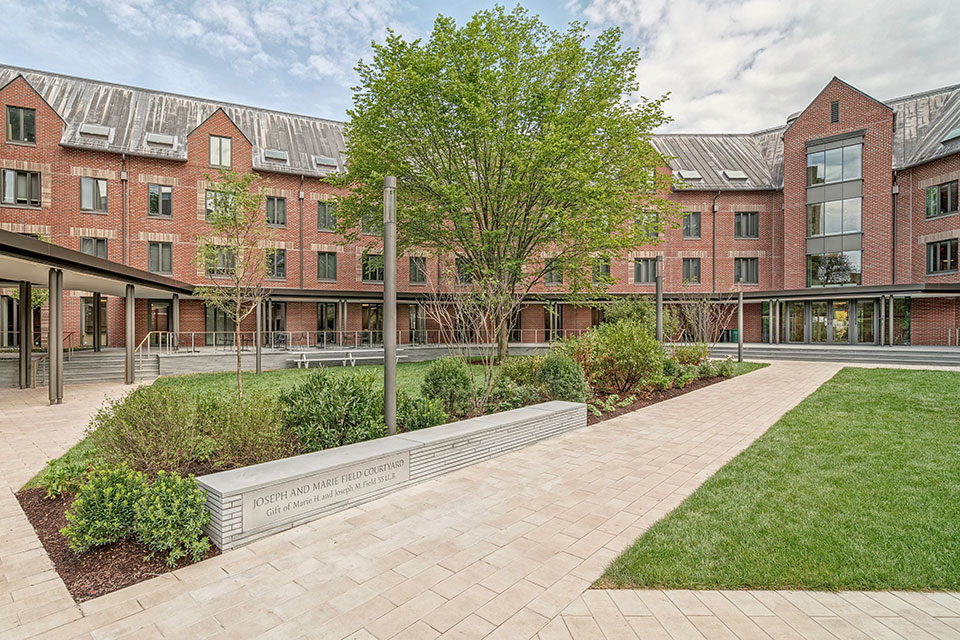MFIA Clinic prepares amicus brief in Maryland First Amendment case

Note: A version of this post originally appeared on the Media Freedom & Information Access Clinic website.
The Floyd Abrams Institute for Freedom of Expression at Yale Law School recently filed an amicus brief in the United States Court of Appeals for the Fourth Circuit to support a First Amendment challenge to a Maryland law that prohibits the broadcasting of audio transcripts that the state’s courts routinely make of criminal proceedings.
Section 1-201 of Maryland’s Criminal Procedure Code states that individuals may not “record or broadcast” criminal proceedings. Adopted at the advent of portable television camera technology, the law sought to prevent the televising of ongoing trials. It does not prohibit the Maryland judiciary from making audio transcripts of criminal proceedings, and these are routinely made available for inspection in the public court files. Maryland, however, has recently taken steps to enforce the decades-old law against journalists who have used the publicly available recordings in documentaries and podcasts, including the acclaimed podcast “Serial.”
The Abrams Institute brief, prepared by the Media Freedom & Information Access (MFIA) Clinic at Yale Law School, asserts that a blanket ban on the broadcasting of audio recordings — “made by Maryland trial courts, maintained in public court files, and expressly made available to the public by court rules” — violates a First Amendment right of access that attaches to judicial proceedings and records.
The brief states that the district court failed to enforce the access right based on its misreading of a 1978 Supreme Court ruling in Nixon v. Warner Communications that declined a record company’s request for copies of Oval Office recordings made by President Richard M. Nixon that were used in the criminal prosecution of several of his top aides. The district court read Warner Communications to hold that audio recordings in the official record of a criminal prosecution are subject only to a common law access right, which the Maryland legislature had properly restricted through its broadcast ban.
The brief explains that Warner Communications is not so broad. The Supreme Court concluded that the common-law right of access to the specific judicial records at issue had been abrogated when Congress passed the Presidential Recordings Act shortly after Nixon resigned from office, but the court did not squarely reject a First Amendment right of access to judicial records. That opinion holds more narrowly that the First Amendment confers no access rights on the press “greater than those of any other member of the public.”
Just two years later, in Richmond Newspapers, Inc. v. Virginia (1980), the Court held for the first time that the First Amendment’s express protections — free speech, freedom of the press, and the right to petition the government — carry with them an implied right of public access to certain government proceedings and records. The Supreme Court subsequently held, twice, that this constitutional access right applies to transcripts of proceedings in criminal prosecutions. The amicus brief contends that this constitutional protection extends to Maryland’s audio recordings.
The brief further explains that the Maryland law was intended “to bar cameras from the courtroom and prohibit electronic media coverage of ongoing proceedings.” While protecting the integrity of court proceedings and defendants’ fair trial rights are compelling governmental interests that may justify a ban on broadcasting ongoing proceedings, they do not justify a blanket ban against the dissemination of audio recordings of long-completed prosecutions. At a minimum, the brief contends that the First Amendment requires a case-by-case review before the state can prohibit the broadcasting of an audio transcript of a completed proceeding.
The amicus brief reinforces the primary legal argument advanced by the documentarians pursuing the appeal, who contend that the law constitutes an impermissible restriction on their right to publish true newsworthy information. As the MFIA brief explains, “[t]he affront to the First Amendment is compounded here because Maryland is not prohibiting the publication of just any true newsworthy information,” but rather, “Maryland is prohibiting the dissemination of judicial records that are themselves subject to an affirmative right of public access — a qualified First Amendment right to inspect, copy, and disseminate Maryland’s audio recordings.”